Hay Festival Querétaro 2023 – Equality
Welcome to the Hay Festival Querétaro 2023 programme. The festival took place from 7 to 10 September, with 105 activities with 151 international guests from 20 countries, and with Hay Joven, Hay Festivalito, Hay Delegaciones and Talento Editorial events, as well as two activities in Cadereyta.
Event HJ4
Angela Saini in conversation with Eduardo Becerra
UNAM ENES
Read moreAngela Saini is a British scientific journalist and radio presenter, as well as a writer whose work has been acclaimed and translated into 14 languages. Her penultimate book, Superior: The Return of Race Science, was shortlisted for the Los Angeles Times Book Prize and named Book of the Year by Nature, the Financial Times and the NPR programme Science Friday. On this occasion she presents The Patriarchs, an audacious, radical book that unearths the roots and history of how this system of domination arose for the first time in societies and spread around the world, from prehistory to the present. Saini offers a hopeful narrative bringing to bear the many possible human agreements that question the old stories of inevitable male supremacy, and reveals that these stories are an element that is constantly changing within systems of control. She will talk to Eduardo Becerra.
Event in English
With the support of Open Society Foundations and the British Council
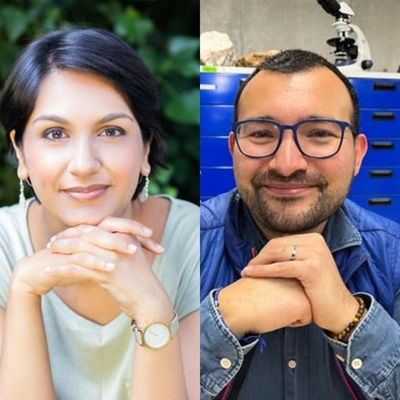
Event HJ5
Guiomar Rovira and Rosaluz Pérez Espinosa in conversation with Kevyn Simón Delgado
South to south conversations: Thirty years of the Zapatista movement
Auditorio del Campus Amealco de la UAQ
Read moreWith the support of Acción Cultural Española, AC/E
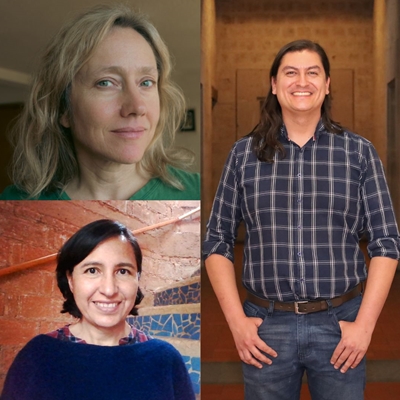
Event HJ13
Rebecca Solnit in conversation with Iliana Padilla
UNAM ENES
Read moreThe writer, historian and activist Rebecca Solnit is an important voice when it comes to matters such as feminism, environmental and urban history, popular power, social change and insurrection, walking and wandering, hope and catastrophe. She is the author of over 25 books, including the anthology she co-edited in 2023, Not Too Late: Changing the Climate Story from Despair to Possibility, as well as Orwell’s Roses, Hope in the Dark, Men Explain Things to Me, A Paradise Built in Hell and A Field Guide to Getting Lost. She writes regularly for The Guardian and is on the board of the climate group Oil Change International. In conversation with Iliana Padilla.
Event in English
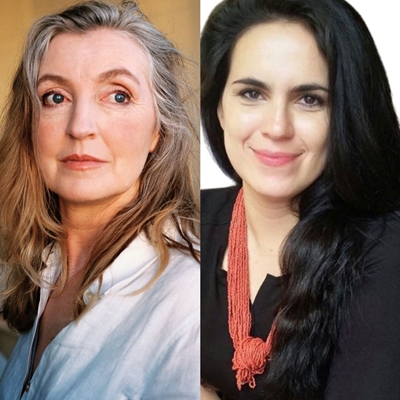
Event HJ14
César Rendueles in conversation with César Andrés García Sánchez
Centro Cultural Aurelio Olvera Montaño UAQ
Read moreThe Spanish thinker and writer César Rendueles presents his work Comuntopía: Comunes, postcapitalismo y transición ecosocial. Rendueles, recognised for his social analyses and critical thinking, describes our current situation of urgency, characterised by ecological, political and technological crises, and goes further to advocate the importance of “common goods”, collaborative systems that manage resources (such as public goods and services), which are growing more scarce for millions of people. His book offers a hopeful message, proposing a global "politics of the commons", aimed at social forces that seek democratic, progressive and emancipatory strategies in the context of post-capitalism. In conversation with César Andrés García Sánchez, Director of University Communication at the Autonomous University of Queretaro.
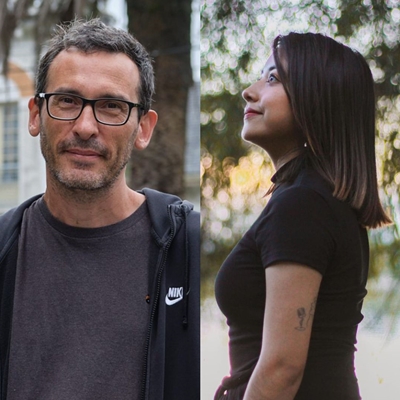
Event HJ16
Nimmi Gowrinathan in conversation with Carla Alicia Suárez Félix
Biblioteca Campus Centro Histórico - Dirección General de Bibliotecas UAQ
Read moreNimmi Gowrinathan (Sri Lanka/United States) is a thinker, academic and activist, and author of Radicalizing Her. Why Women Choose Violence, a fascinating study of women active in guerrilla movements, including the FARC (Colombia), the Tamil Tigers (Sri Lanka), the Syrians who have fought against the Asad government, the EZLN in Mexico and the PLO in Palestine. The book dismantles beliefs about gender and analyses the many reasons that lead these women to armed struggle. Gowrinathwan is a professor at City College in New York, where she has founded the Politics of Sexual Violence initiative, and works regularly with media outlets such as CNN, MSNBC, Al Jazeera and the BBC. In conversation with Carla Alicia Suárez Félix.
Event in English
With the support of Open Society Foundations

Event 7
Rosaluz Pérez Espinosa and Guiomar Rovira in conversation with Yásnaya Elena Aguilar Gil
South to south conversations: thirty years of the Zapatista movement
Teatro de la Ciudad
Read more2024 is the thirtieth anniversary of one the most important revolutionary uprisings of the last half century, one that resonated internationally and which continues to inspire emancipatory movements around the world. The Zapatista movement, with its egalitarian, community organization, its advocacy of traditional knowledge, and its impressive capacity for communication (it was one of the first resistance movements to use the Internet to publicise its ideas), offers us a living alternative to raw capitalism. At this event, Rosaluz Pérez Espinosa, who has studied at first hand the role of women in the construction of the Zapatista political project; and Guiomar Rovira (Spain), journalist, writer and author of Zapata vive, will talk to Yásnaya Elena Aguilar Gil.
With the support of Open Society Foundations and Acción Cultural Española, AC/E
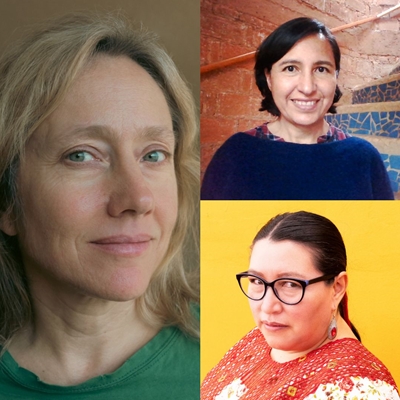
Event HC11
Frida Cartas in conversation with Imanol Martínez
La Otra Bandita
Read moreFrida Cartas (Mexico), from Mazatlán, describes herself as a housewife and part-time writer. A former presenter at the Instituto Mexicano de la Radio with the programme Altersexual (a sexual anthropology programme) on Radio Ciudadana, she contributes to digital media outlets and gives workshops on sexual and reproductive rights for young people, with a class and gender perspective. She is also the author of the extraordinary novel Transporte a la infancia, which, using honest, colloquial language, recalls the scenes from her childhood in which she discovered and affirmed her identity, creating an essential testimony for the recognition of trans childhoods, bringing to light the urgency of guaranteeing respect, protection and freedom for trans children. In conversation with Imanol Martínez.
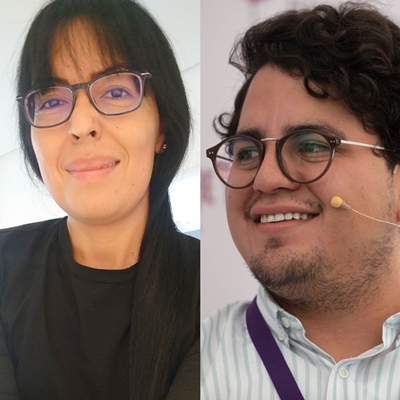
Event 12
Petina Gappah, Garry Gottfriedson and Josefa Sánchez with Mikel Ruiz
South to south conversations: narratives in plural
Museo de la Ciudad (espacio escénico)
Read moreThree festival guests offer space to non-hegemonic narratives through their artistic and intellectual work, and ask why these ways of seeing the world can be the path to a better future as societies. With Pettina Gappah (Zimbabwe), Garry Gottfriedson (Canada) and Josefa Sánchez Contreras (Mexico), in conversation with the writer Mikel Ruiz (Mexico).
Simultaneous interpretation from English to Spanish availableWith the support of Open Society Foundations and Blue Metropolis
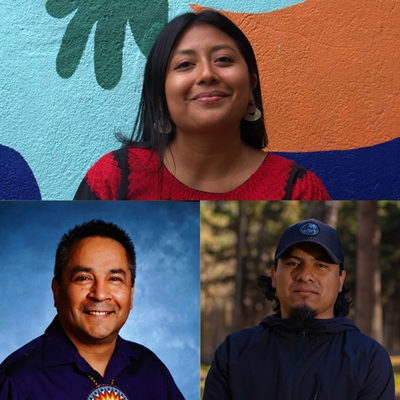
Event 16
Angela Saini in conversation with Javier García del Moral
Cineteca Rosalío Solano
Read moreAngela Saini is a British scientific journalist and radio presenter, as well as a writer whose work has been acclaimed and translated into 14 languages. Her penultimate book, Superior: The Return of Race Science, was shortlisted for the Los Angeles Times Book Prize and named Book of the Year by Nature, the Financial Times and the NPR programme Science Friday. On this occasion she presents The Patriarchs, an audacious, radical book that unearths the roots and history of how this system of domination arose for the first time in societies and spread around the world, from the prehistory to the present. Saini offers a hopeful narrative bringing to bear the many possible human agreements that question the old stories of inevitable male supremacy, and reveals that it is an element that is constantly changing within systems of control. In conversation with Javier García del Moral.
Simultaneous interpretation from English to Spanish available
With the support of the British Council

Event 19
César Rendueles in conversation with Eduardo Rabasa
The utopia of the commons
Cineteca Rosalío Solano
Read moreThe Spanish sociologist and writer César Rendueles, a CSIC scientist and outstanding thinker, known for his many cultural projects and essays such as Sociofobia (2013), Capitalismo canalla (2015) and Contra la igualdad de oportunidades (2020), presents Comuntopía. Comunes, postcapitalismo y transición ecosocial (2023). This book proposes a global “politics of the commons” as a crucial opportunity for the social forces that advocate democratic, progressive and emancipatory strategies in the context of the new post-capitalism; framed in a context of ecological, political and technological emergencies. This is where the struggle for our "common goods" happens. In conversation with Eduardo Rabasa.
With Mexican sign language interpretation
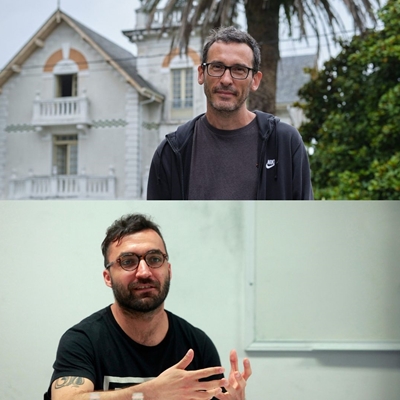
Event 22
Baruc Martínez Díaz and Angela Saini in conversation with Diego Rabasa
(In)equalities
Cineteca Rosalío Solano
Read moreAt this event, which is part of the Equities series, co-organized with the British Council, two academics and writers will talk about the racial bias for the construction of historical narratives and how, with an intersectional reading, we can see how history has traditionally been written by the colonisers. With Baruc Martínez Díaz (Mexico) and Angela Saini (United Kingdom), in conversation with Diego Rabasa.
Simultaneous interpretation from English to Spanish available
With the support of the British Council
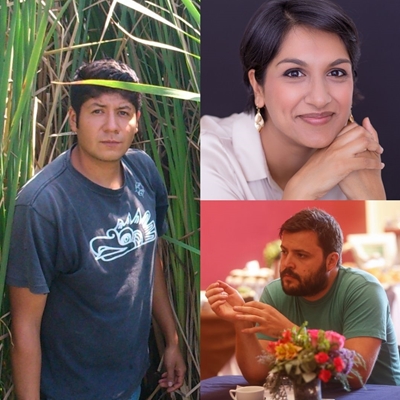
Event 25
Rebecca Solnit in conversation with Gabriela Warkentin
Teatro de la Ciudad
Read moreThe writer, historian and activist Rebecca Solnit is an important voice when it comes to matters such as feminism, environmental and urban history, popular power, social change and insurrection, walking and wandering, hope and catastrophe. She is the author of over 25 books, including the anthology she co-edited in 2023, Not Too Late: Changing the Climate Story from Despair to Possibility, as well as Orwell’s Roses, Hope in the Dark, Men Explain Things to Me, A Paradise Built in Hell and A Field Guide to Getting Lost. She writes regularly for The Guardian and is on the board of the climate group Oil Change International. On this occasion she will talk about her work with the communicator Gabriela Warkentin.
Simultaneous interpretation from English to Spanish available

Event 28
Yásnaya Elena Aguilar, Cristina Fuentes and Josefa Sánchez with Felipe Restrepo Pombo
On museums and colonialism
Patio de la Delegación del Centro Histórico
Read moreWith Mexican Sign language interpretation
Coorganised with Santo Domingo Centre of Excellence for Latin American Research (SDCELAR) at the British Museum
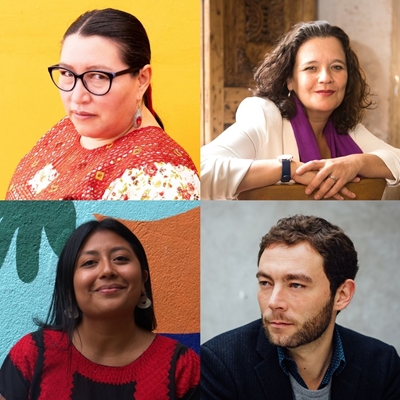
Principal Sponsor


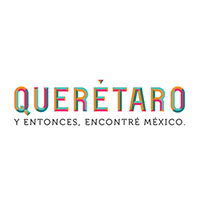
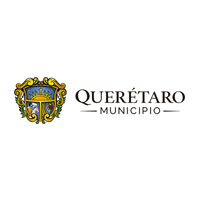
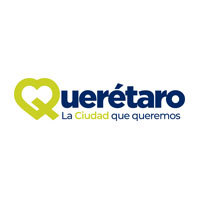
Partner for Latin America

